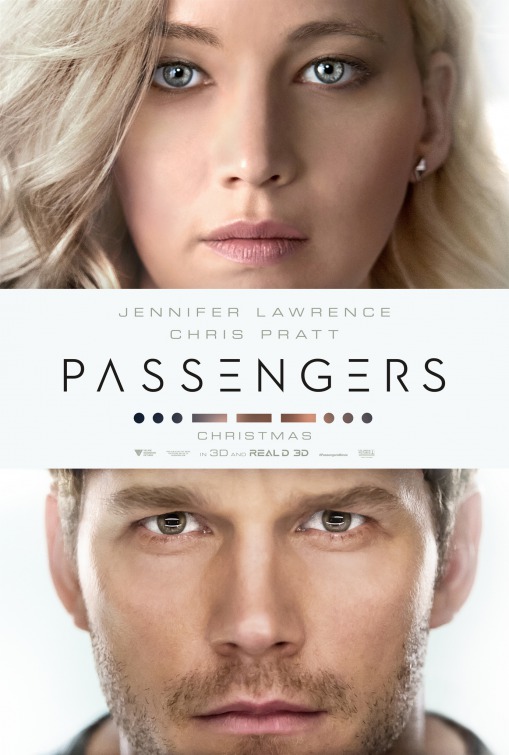Homesteading. Many years ago, when land was plenty, the government offered it to people who were willing to till the soil, grow some crops. Perhaps raise a family. It was not an easy life. In fact, you could probably retire today and still be tilling soil.
What in the world does this have anything to do with Morten Tyldum’s (“The Imitation Game”) new sci-fi film, “Passengers”?
Very little or quite a bit; it really depends on your point of view. The intent of the government was to get people to become productive because they had no other choice: they were cornered into a unique way of life that not everyone is cut out for.
In Jon Spahits’ (“Doctor Strange”, “Prometheus”) script, the meaning of homesteading, “a lifestyle of agrarian self-sufficiency as practiced by a modern homesteader or urban homesteader,” equally applies to the 5000 corporately-sponsored passengers aboard the Starship Avalon, destined for the colony planet Homestead II.
The trick is that the journey is so long, everyone on board is in hibernation and the state-of-the-art starship is on auto-pilot. An engineer, Jim Preston (Chris Pratt) is woken up alone with no explanation and no one to communicate with. He is eventually joined by author Aurora Lane (Jennifer Lawrence). As the only two souls awake on board the ship, they fall in love but not before disaster strikes. Michael Sheen, Laurence Fishburne and Andy Garcia co-star.
Spahits’ script should have checked all the right boxes: characters are well-fleshed out; the set-up was strong; social issues are at the forefront. The focus strayed from sci-fi-adventure to kitschy sci-fi-adventure-romance, where the romance just didn’t cut it. Preston’s reason for being woken up is clear; the emotional side of isolation became a focus instead of allowing his skills to move the character and the narrative forward, leading to the intended romantic angle; a wasted effort considering Jennifer Lawrence’s Lane tried too hard to remain in control, though her reasons for that become clear after a meltdown. Had Fishburne phoned his performance from Earth, it would have been more convincing then what unfolded on the screen. In homage to a Kubrick classic, Michael Sheen stole the show; but his role in a pivotal moment just fell flat. Tight editing by Oscar-nominated editor Maryann Brandon (“Star Wars: The Force Awakens”) keeps the pacing on track.
The script notwithstanding, there is one redeeming reason why this should be viewed on as big a screen as possible: the special effects. In the tradition of Kubrick’s “2001: A Space Odyssey” and Scott’s “Alien”, Tyldum executes a strong, detailed technical look.
From the symmetry of the Avalon to the look and feel of the interior corridors, the hibernation pods, the stars and space around the ship, everything has a very real or visceral feel about it and visual effects supervisor Erik Nordby rose to the challenge brilliantly. The effects are supported by strong cinematography from the Oscar-nominated Rodrigo Prieto (“Brokeback Mountain”). His attention to every detail, from lighting of cavernous interior spaces, to changing reflective lighting and exterior shots in space, Prieto’s work only enhances the visual impact.
Oscar-nominated film composer Thomas Newman (“Bridge of Spies”, “Skyfall”) resonates with the luxuriousness of the Aurora and the allure of space exploration. Some of his dramatic riffs didn’t exactly jive with the onscreen action, but his music served the film well.
“Passengers” had all the right ingredients for a stellar show, its ambition steeped in “Titanic”. Instead, its ‘Lost in Space’ meets ‘The Love Boat’ with all the drama that that entails.
For the intricately detailed technical effects work, “Passengers” is Recommended. Aaron Spelling is probably rolling over in his grave.
